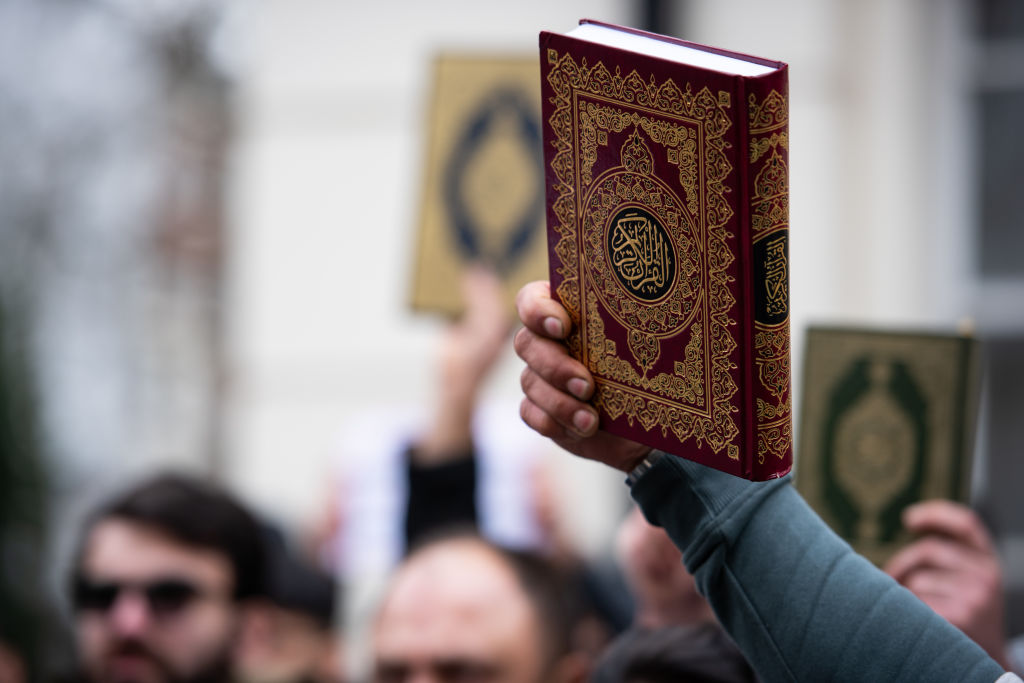The best thing about being a playwright? The satisfaction of creativity. The worst? Press-night parties attended by friends, industry people and celebs. Playwright Terry Johnson says he knows writers who find such occasions so hellish they’ve been put off writing plays altogether. The problem is the corrosive, deeply unsettling belief that everyone is lying to you. Everyone knows the rules: on press night, say something nice, even if it was a giant turkey. No negatives. That’s the critic’s job. But writers know this, so never believe any compliment, ever, even if the person paying it is telling the truth. The only time a writer can be sure of something is when they hear the dreaded words ‘You did it again!’ or ‘What an achievement!’, which, translated, mean only one thing: ‘I really hated it.’
I have bravely – foolishly? – agreed to play the minor role of myself as the play is about my relationship with my mother and the director thought it was a good idea. I hope he’s right. The usual response when I tell people this is: ‘That should be easy. You just have to get up there and be you.’ But it isn’t. Being yourself on stage is different from being yourself in real life. Which of your selves do you portray? And how? And I’m no Olivier. But I have acted before and hope to be better than O.J. Simpson, who played himself in films. His director said: ‘His acting was like his murdering: nobody believed him but he got away with it.’
An old stage joke: it’s easy to make a million in the theatre – you just need to start with a billion. There is truth in this jest, especially for investors. Not so much for producers though. They pay themselves generous production fees and benefit from theatre tax relief, which keeps the industry afloat. One of my plays, at London’s 200-seater Park Theatre, earned its producer around £150,000 in five weeks. My royalty? £3,000. The justification for this is that producers take financial risks and so should reap the rewards. But how risky is it? Most of them use OPM (Other People’s Money.) I am thinking of becoming a producer.
A midweek distraction from rehearsal stress: a visit to the Old Vic and Tom Stoppard’s The Real Thing. The line ‘I don’t like bands, I like singles’ – uttered by the Stoppard-esque lead character – struck a chord, as it defines my theatrical taste: I don’t like playwrights, I like individual plays. A fascinating theory about Stoppard, advanced to me by a friend of his, is that he owes his success to the fact that, unlike most of his literary peers, he didn’t go to university. The dazzling intellectual prowess of his work, the theory goes, stems from his desire to prove he’s just as intelligent and well-read as any literature graduate. Cod psychology – or a good argument for not sending your offspring to university?
Off to the Frontline Club, Paddington’s pleasingly quiet journo hangout, for some end-of-last-week dinner gossip with an old friend from BBC days. Turns out we haven’t heard the last of the Huw Edwards scandal. Several different documentary ideas are being pitched to various broadcasters and streamers. Big editorial teams have been assembled, former colleagues of his are being asked to go on camera, and much research is going on, particularly into his digital imprint. His mobile, we were told, was ‘lost’. Much will depend on whether it can be found. And if not, whether the information therein can be retrieved.
Visiting the BBC last week, I noticed a large wooden box covering the Eric Gill statue outside Broadcasting House. What is going on? Spies tell me the artwork is being placed in bullet-proof glass following a hammer attack on it last year. (Gill abused his daughters, at least one of his sisters and, it is said, his dog.) Could this be the BBC’s next PR disaster? Think of the possible Mail headline: ‘BBC PROTECTS PAEDOPHILE.’ For once, I have sympathy with the Corporation. Usually its scandals are self-inflicted. But this seems like a classic no-win situation. Had it done nothing post-attack, it would have been accused of failing to protect a national treasure (sculpture, not sculptor). But by bullet-proofing it they risk the wrath of the anti-woke mob. Were it up to me, I would do nothing. Isn’t a defiled statue a more exciting and relevant piece of art than a perfectly formed one? It hasn’t done the Venus de Milo any harm.
Jonathan Maitland’s How to Survive Your Mother runs at the King’s Head Theatre in Islington, north London, from 23 October to 24 November.







Comments